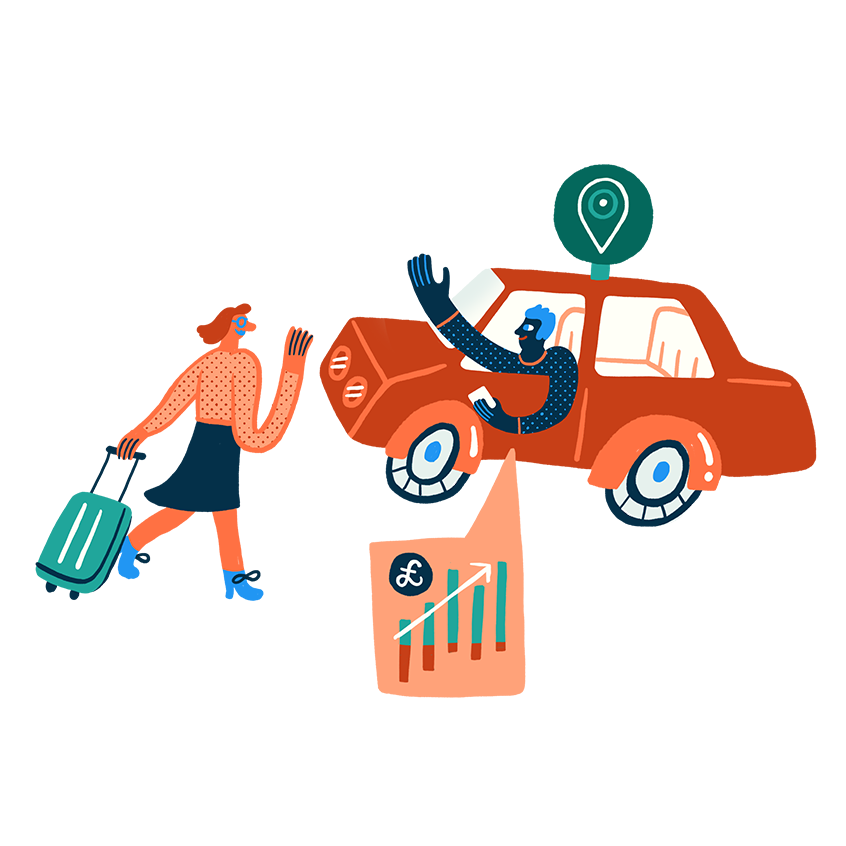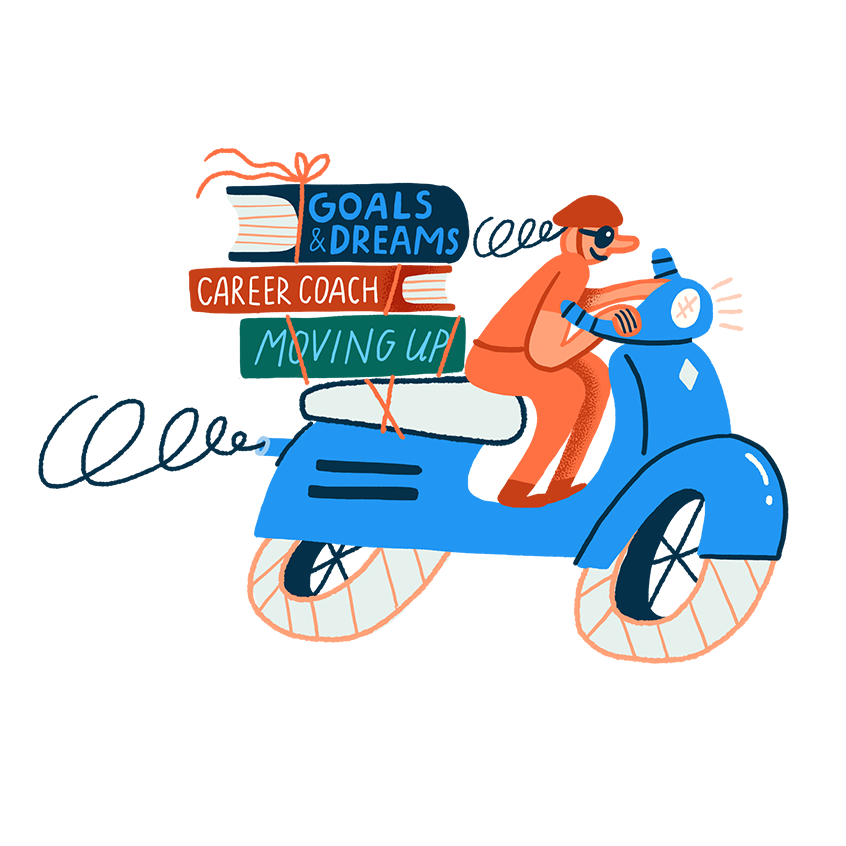Work is part of people’s identity. It can be a source of pride, build communities and define individuals. But that does not happen if people cannot work with dignity. The people we spoke to who were reliant on gig work described how management by algorithm – where a faceless app mediates all their interactions – leaves them voiceless and disrespected.
When I went to sign-up, I was loyal to the company, but then you realise that they really don’t care about you. You’re just a number. – Delivery rider, London
The gig economy is founded on the concept that work can be parcelled out into tasks that any available worker can undertake. But for workers, that leaves them feeling anonymous and unrecognised.
The general consensus is that everyone is pissed off, nobody really wants to be doing it, but a lot of my colleagues are quite miserable. Mental health is a big issue in the industry. – Delivery rider, London
These experiences are compounded by a distance between many platforms and those that work on them. Many digital gigs come with no more than generic automated support, facilitated by chatbots and boilerplate FAQ webpages. These services can often lack the nuance and context needed to adequately address workers’ needs.
The workers we spoke to described the dehumanising effect of this robotic support, that implies their concerns are not worthy of a conversation:
If you have an issue and you call them they’ll do their best not to do anything about it – It got to a point where they had call centres in the Philippines where the people just had scripts – Delivery rider, London
Describing the frustration of not being able to explain or contextualise his actions, one driver spoke of how this strips him of agency and makes the knowledge he’s built up through hundreds of hours of gig work redundant.
Some platforms do make efforts to build relationships with their workers – Uber hosts driver dinners in certain areas, for example, and Deliveroo holds rider focus groups, awards ceremonies and ‘digital easter egg hunts’. But these initiatives typically reach only a fraction of the overall workforce, and are held on platforms’ terms.
Changes to the design of apps or algorithmic decisions made by platforms are often imposed unilaterally, or at best after consultation with a relatively small group of workers.
Workers’ financial insecurity makes them powerless to rebel: “Ultimately they [apps] don’t care, they’re like ‘regardless we know you’re going to work for us whether we put these plans in action now or ten years from now.”
Academic research by Meijerink & Keegan confirms this first hand experience:
As the term implies, the centrality of the “app” in appworking relationships is absolute. That the algorithm underpinning the app is designed, developed, and implemented heavily or entirely by marketing specialists and system designers within organisations, with little, if any, worker contribution, challenges established thought on the HR function’s role in effectively managing working relationships.
This one-sided communication between worker and platform can have insidious effects, with workers put off from rejecting jobs, raising complaints or acting to collectively assert their rights for fear of backlash from customers and the algorithms that rule over their working lives.
A driver from Stoke-on-Trent described their fear of “revenge ratings” because the platform design dictates that the gig worker must rate customers first, which then disincentives drivers from leaving bad reviews of problem passengers in case their own ratings suffer in return. And the disrespect workers encounter from the platform is mirrored in their interactions with their customers.
They see the number, they don’t see me, they don’t talk to me directly… that’s the difference between what I’m doing now and what I want to do – Rider, London
Although they do receive tips and gratitude in some places, they’re also on the receiving end of verbal and physical abuse in others: “if anything goes wrong customers take it out on you and they don’t care that it’s not your fault.”
This abuse, understandably, takes it toll on these people. Many of the workers we spoke to called for greater mental health support from both platforms and government.
Strengthening worker representation through platform co-design
Gig platforms are in a state of constant evolution. User and worker interfaces, matching and pricing algorithms, economic models and other design features are iterated on a daily basis to keep up with technological progress and the needs and wants of the markets in which they operate.
But our research shows workers are typically excluded from these development cycles: changes are imposed on them, not made with them. To give workers the respect they deserve and capitalise on the valuable knowledge they hold, companies must give them a stronger voice by changing how platforms are designed and developed.
We recommend companies establish governance structures that give gig workers a greater voice in the design of platforms, that enable them to co-design features that directly affect workers and provide commitments for how organisations will engage with them.
These structures could take the form of a worker co-design council, representation on boards or workers voting on key decisions, for example. Workers must have the formal power to approve and shape major design changes, and must be represented as platforms’ apps, algorithms and commercial strategies evolve. This will help to redress the power imbalance between platforms and workers, and in the long term will benefit companies as they learn from their workers’ insights and improve retention of workers.
These co-design collaborations could, for example, redefine ratings metrics, design features of the worker interface to improve performance and support task discretion, or mandate levels of access to human representatives of platforms if workers need support.
Redesigning worker support to include human interaction
We wanted our imagined avocado delivery platform, AvocaGo, to respect workers’ desire for meaningful and timely human responses to any issues they encounter.
Our prototype idea is simple. In a world where interactions are mediated through an app and often automated or ignored, we propose that workers can have access to human interaction to solve their questions or seek redress.
This could happen through the app which triages workers to get immediate assistance from a fellow worker, or book a video call meeting with a platform representative (fig 4).
Hide


